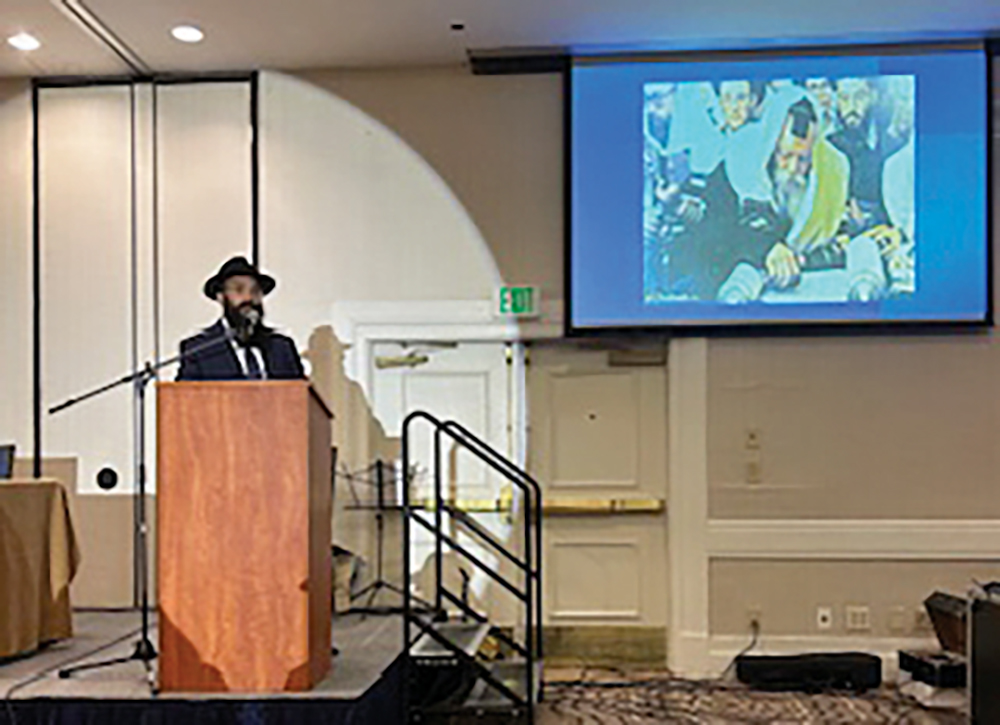Last week, the Chabad of Westchester County conducted an evening to reflect and celebrate the life of the Lubavitcher Rebbe, Rabbi Menachem Mendel Schneerson, in honor of his 30th yahrzeit. Congregants from 19 shuls in Westchester gathered at the Sonesta Hotel in White Plains for a program featuring an hour of personal stories from Rabbi Yehuda Krinksy, the Rebbe’s secretary for over 40 years, followed by a string quartet performance of the Rebbe’s Hasidic nigunim.
“Many in Westchester feel a deep connection to the Rebbe, and his impact is strongly felt here even today, 30 years after his passing,” said Rabbi Mendel Silberstein, director of Chabad of Larchmont and Mamaroneck. “The Rebbe’s influence is felt most through the Chabad-Lubavitch movement, which became the largest and most dynamic Jewish force in the world under his leadership, with more than 3,500 institutions across more than 100 countries.”
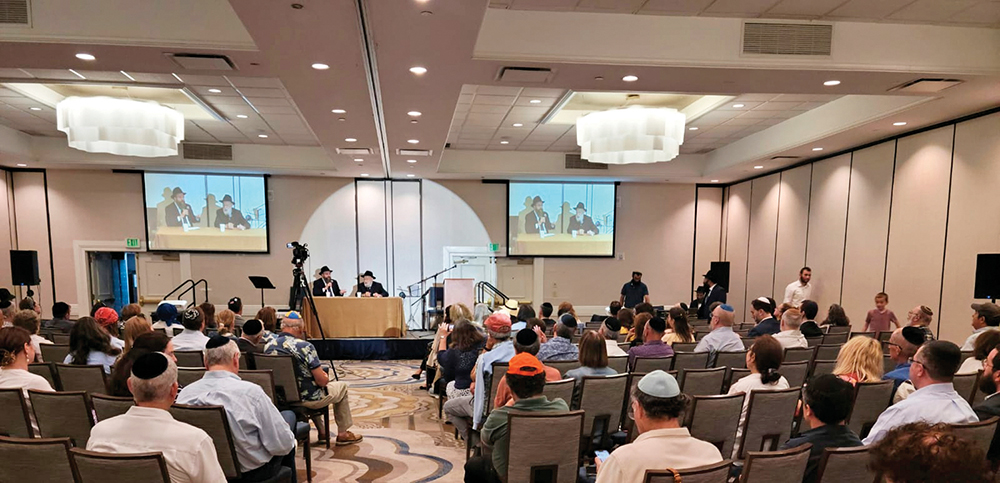
The event began with a video of highlights and clips of the Rebbe’s life. The narrator said: “Each Sunday the Rebbe would receive thousands of men, women and children, in all walks of life, regardless of race or color, and among them were world leaders, scholars and simple folk. To each of them the Rebbe would give a dollar bill to give to the charity of their choice. Why a dollar? The Rebbe explained that when two people meet, something good should result from it.
“The Rebbe wished to elevate the thousands of encounters he had in a day with something more than just a meeting. He wanted each meeting to involve a mitzvah—a good deed. At the age of 92, he would stand for as long as eight hours without interruption to receive his visitors. But for the time that he or she was with the Rebbe, each person felt that he or she was the only visitor that day. He took a generation from the ashes of the Holocaust and inspired the rebuilding of Jewish life to the great crescendo it has reached today.”
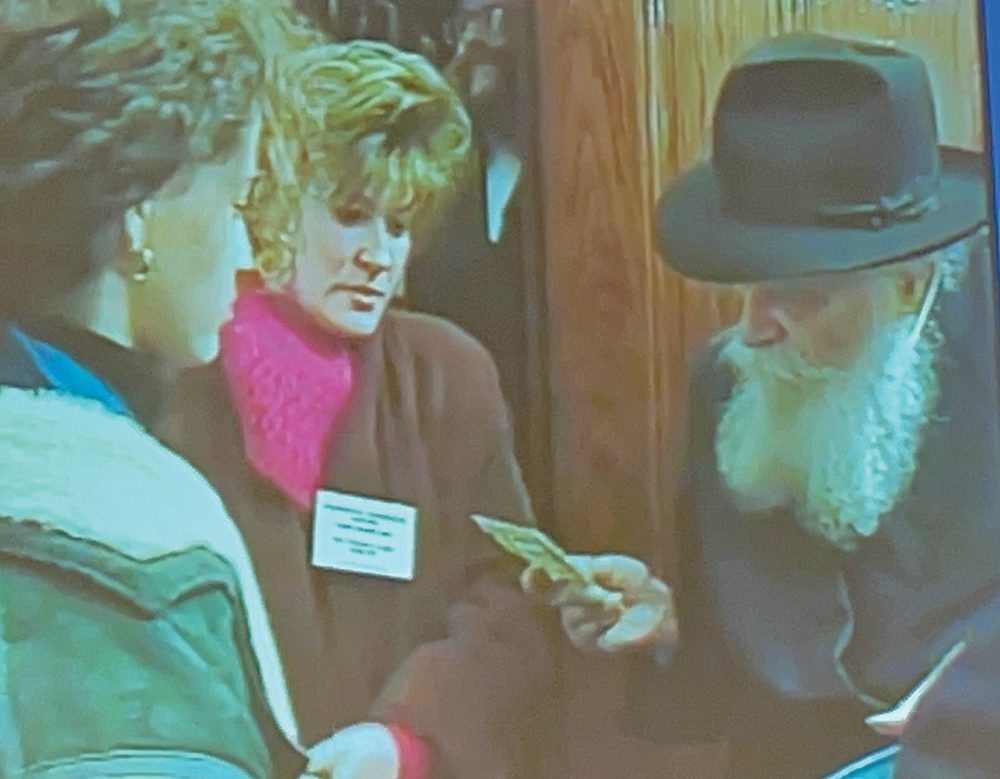
Rabbi Sruli Deitsch of the Eastchester Chabad introduced the event. He invited Rabbi Chaim Marder from the Hebrew Institute of White Plains to recite Tehillim for the freedom of the hostages in Gaza. He then asked everyone to do more for the people suffering from the war, instructing the audience to pull out their phones and open the website onemitzvah.org/westchester. This campaign encourages people to commit to extra mitzvot for the safety of the people in Israel.
Rabbi Deitsch then invited Krinsky to the stage to share memories of his career with the Rebbe. Krinsky served the Rebbe starting in 1952 and officially assumed the responsibility of secretary in 1957. Now 90 years old, he is still the chairman of the educational arm and social services of Chabad. He came to the stage along with his grandson, Rabbi Berkowitz.
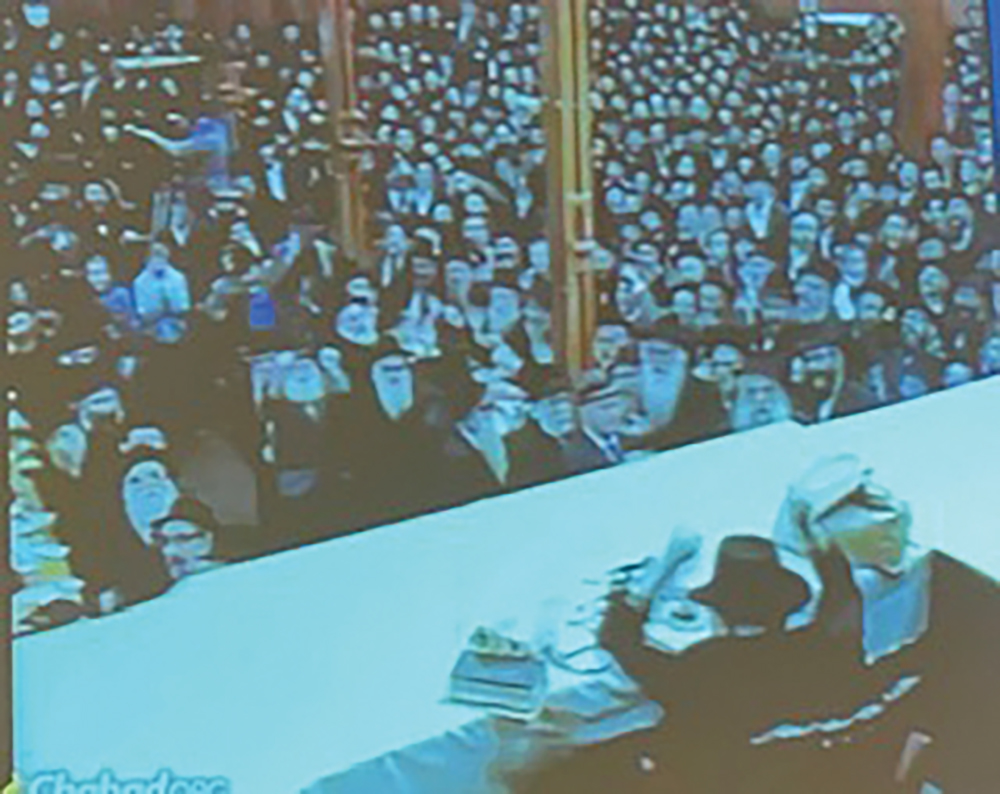
Krinsky told those gathered that he became the Rebbe’s driver at age 16. He happened to be in the study hall at 770 Eastern Parkway in Brooklyn when the Rebbe needed someone to drive him to his father-in-law’s grave, the “Ohel.” The Rebbe sat in the front with him and they talked and, soon after, the teenager became the Rebbe’s official driver.
Krinsky shared that the Rebbe eventually helped him decide whom to marry. At age 23, Krinsky asked the Rebbe for advice. Valuing the Rebbe’s input, he made his choice, and had a wonderful marriage.
The night of his engagement party Krinsky had driven the Rebbe to a boys’ summer camp to speak. When a nearby girls’ summer camp heard that the Rebbe was around, they wanted him to come speak there as well. The Rebbe didn’t want to let them down, so he went to speak there afterwards. The young driver ended up missing his own engagement party. (It was rescheduled for the next night.) When the Rebbe realized what had happened, “he showered me with blessings,” said Krinsky. “I wouldn’t trade that for anything in life. I profited from that.”
At the time that Krinsky got married, he had no plans beyond studying and driving the Rebbe. However, the Rebbe, who had seen his writing skills, transitioned him into becoming his personal secretary. When Krinsky’s parents came in from Massachusetts for his wedding, the Rebbe asked to speak to his father and told him that he shouldn’t worry about his son’s financial future. The Rebbe assured him that he would ensure Krinksy’s financial stability.
Krinksy recalled the first time the Rebbe gave him a letter to type. It was full of crossouts, arrows and corrections. Krinsky must have looked confused, because “the Rebbe said to me, ‘Don’t be confused. Begin from the beginning. Read word after word, line after line. And you will see that in the end, it will all work out.’ I felt he was giving me a lifelong attitude. And I give you that advice too. Every human being needs that advice: Word by word, line by line, take it easy. In the end, it will all work out.”
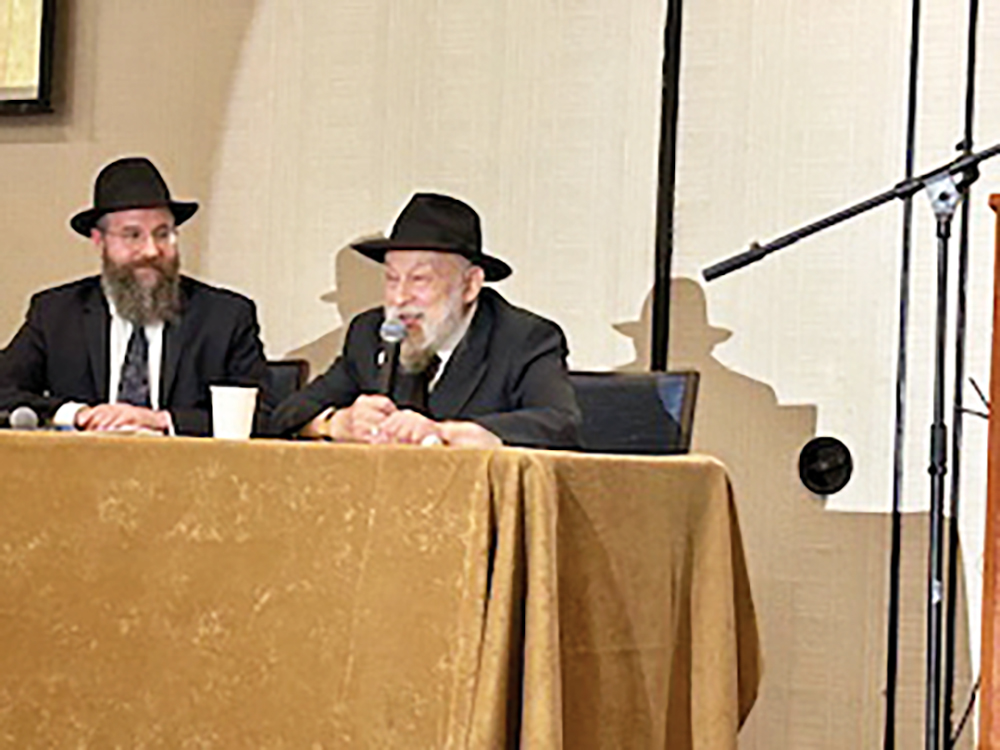
When asked to relay examples of particular cases in which the Rebbe helped people, Krinsky said there were countless examples. He chose to tell the story of a famous sculptor, Jacques Lipchitz, who had been commissioned by the Israeli government to create a large sculpture to stand in front of the entrance of the Hadassah Hospital in Jerusalem. Lipchitz had sculpted a 20-foot phoenix, and was not quite finished when he passed away.
After his passing, his wife, Berthe Lipchitz, an accomplished sculptor in her own right, wanted to finish the sculpture on his behalf. But the Israeli government said that the phoenix is a Christian symbol, and not a Jewish one. They told Berthe that they would therefore not honor the contract, and rejected the sculpture. Berthe was devastated, and came to see the Rebbe. In the middle of their meeting, the Rebbe summoned Krinksy to bring him the book of Job. He then opened it up to Rashi’s comment in Chapter 29, verse 19, where Rashi explains the word “chol” to mean a phoenix that rises from the ashes. The Rebbe read this to Berthe and told her to tell the Israeli government that they were amiss, since clearly the phoenix is a Jewish symbol. The sculpture is still standing in front of Hadassah Hospital today.
When asked about Krinsky’s relationship with the Rebbe’s wife, Chaya Mushka Schneerson, Krinsky said that he had felt close to her as well. “It’s hard to imagine the Rebbe marrying a woman who would be at the same level or close to his level, but he found that woman. She was the woman the Rebbe deserved to have, and she deserved him. What a remarkable woman! I can’t in my own mind articulate what kind of a person she was. I can only say that she was a very fine, fine woman. I’ll never forget her kindness.”
When Rabbi Krinsky concluded, a professional string quartet assumed the stage. After watching an explanation of each melody and the feelings it should evoke on the screen, the quartet played each nigun.
This commemorative event was one of thousands around the world last week that emphasized the Rebbe’s impact, teachings and enduring legacy.


